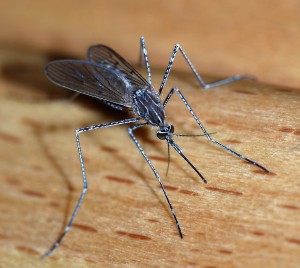Symptoms of Malaria
No anti-malaria tablet is 100% effective. It is still possible, although unlikely, to contract malaria whilst taking anti-malaria tablets.
Malaria symptoms at the beginning are similar to flu. Symptoms include fever, shivers, sweating, backache, joint pains, headache, vomiting, diarrhoea & sometimes delirium. Most cases of malaria start within 3 months although there can be a delay of up to 12 months. • Seek medical advice for malaria symptoms; even if you have been taking anti-malarial tablets. • Delays in seeking advice can be fatal.
Avoiding bites
Mosquitoes can bite at any time of day, although they most often bite between dusk to dawn • Wear long-sleeved clothing and long trousers if you are out at night. • Use insect repellent on exposed skin and under thin clothing. • Insecticide sprays, mosquito coils and heating insecticide impregnate tablets all reduce the risk of bites. • Where possible sleep in screened rooms and use a mosquito net, preferably one impregnated with insecticide (Permethrin). All our mosquito nets are impregnated and this will last for 20 washes. Ultrasound devices, garlic and Vitamin B do not prevent bites. We also have treatments to dip or spray onto clothing. People travelling in remote areas for prolonged periods may need to carry a malaria treatment with them. This will require further advice at a specialist clinic or your GP
Malaria Protection
Our list of anti-malarial medication now includes Lariam® (mefloquine) for both adults and children over 6kg for use for a maximum of one year’s protection.
For more information about malaria and to find the risk in any country, use the link to the nhs malaria guide
Lariam® (mefloquine)
Lariam® is NOT suitable for people who are prone to depression or emotional and/or psychiatric disorders or people with a history of fits and epilepsy. It is more likely than Malarone® (atovaquone/prohuanil) or doxycycline to impair motor skills, including the ability to drive.
Due to its long “half-life” (that is the time it remains in the body tissues after discontinuation of the drug)side effects or adverse reactions can be prolonged, sometimes persisting for weeks or months after stopping the drug.
It is important that any of these issues are highlighted on the Risk Assessment Form – (to download see Information tab) and discussed with the travel consultant.
However this long “half-life” also has the advantage in that Lariam® need only be taken once a week – so for a young child a quarter of one tablet once a week is easier to maintain compliance than a daily dose.
Anti-malarial treatment with Lariam® should be started 10 days before departure. First intake 10 days before and second intake 3 days before. It should be continued for 4 weeks after leaving the malaria zone.
It must always be remembered that no anti-malarial regime is 100% effective – always take mosquito avoidance measures to avoid being bitten – “if you do not get bitten you cannot get malaria”

